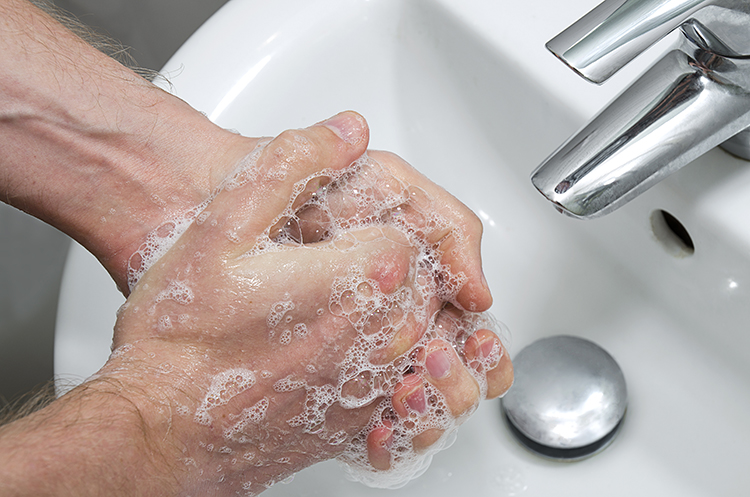
People working on farms come face to face with potential safety and health hazards daily. While certain risks come with this occupation, many dangers can be avoided, explained veterinarian Dee Ellis during a Livestock and Poultry Environmental Learning Community webinar.
One such risk is the spread of zoonotic diseases, which are infections that can be transmitted from animals to humans or from humans to animals. Ellis, a research veterinarian at Texas A&M University, said these diseases can be spread though animal bites, vector bites, or fecal contamination. They can also be food-borne or water-borne, or they can be inhaled. “Mucous membranes, such as the eyes, nose, and mouth, are basically an open door for germs to get into your body,” said Ellis.
The pathogens that cause zoonotic diseases can also be spread through fomites, which Ellis described as nonliving objects where disease agents hang out. This includes items such as equipment, doorknobs, clothes, and dirty boots, which Ellis pinpointed as one of the easiest ways to track germs where they don’t belong. Organic materials, like mud, manure, and soiled bedding, are also a great place for viruses to hide.
Ellis noted that diseases do not occur randomly; transmission is a relationship between the agent, the host, and the environment. Ellis said that even if a disease-causing agent and a susceptible host are present, transmission can be prevented by properly mitigating the risk in the environment using best management practices.
“Transmission is not an accident; you have to have all three working together to transmit disease,” Ellis emphasized.
An integrated risk management plan to minimize the risk of accidental or intentional exposure and the release of pathogens or toxins combines two concepts: biosafety and biosecurity
Biosafety is the measures taken by an individual to prevent infection. This includes actions such as hand washing and wearing personal protective equipment (PPE), and Ellis said employee education is key. “Make sure they understand the risks, make sure they have the right equipment to protect themselves, and make sure they use it,” Ellis said.
People working in hazardous conditions should have disposable gloves, dust masks, goggles, and proper footwear. There should be access to soap, disinfectants, and handwashing stations. It is important to follow proper handwashing protocols and not use dirty hands to touch the mouth, eyes, or any open wounds.
Biosecurity is the action taken by an individual to prevent the spread of disease. On a farm, this could be proper cleaning and disinfecting of equipment and doing “clean” jobs first, then “dirty” ones. Clothes and footwear should be washed regularly, especially after working with sick animals, and again, PPE should be provided and utilized when necessary.
Ellis said farms should have clear biosecurity policies in place, and practice, practice, practice is what will make these steps become routine. He said a few basic practices can go a long way in protecting yourself and others.








